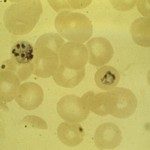Link to Pubmed [PMID] – 38436065
Link to DOI – 10.1080/1744666X.2024.2323964
Expert Rev Clin Immunol 2024 Mar; (): 1-6
Atopic dermatitis (AD) is a common, chronic inflammatory skin disorder driven by an intricate interplay of genetic, environmental, and immunological factors.As a clinically heterogenous condition, AD may be stratified into subtypes based on factors including, chronicity, immunoglobulin E levels, severity, age, and ethnicity. Transcriptomic and proteomic analyses in skin and blood help elucidate the underlying molecular mechanisms of these AD subtypes, referred to as AD endotypes. Further characterizing AD endotypes using reliable biomarkers can facilitate the development of more effective and personalized therapeutics and improve our tools for monitoring disease progression and therapeutic response across a diverse subset of patients. Here, we aim to provide perspective on the latest research regarding AD stratification using skin and blood-based studies and insight into the implications of these findings on the future of AD research and clinical practice.The precise stratification of AD endotypes will allow for the development of reliable biomarkers and a more personalized medical treatment approach. Clinical practice and trials will eventually be able to bridge clinical with molecular data to optimize individualized treatments and more effectively monitor treatment response.

